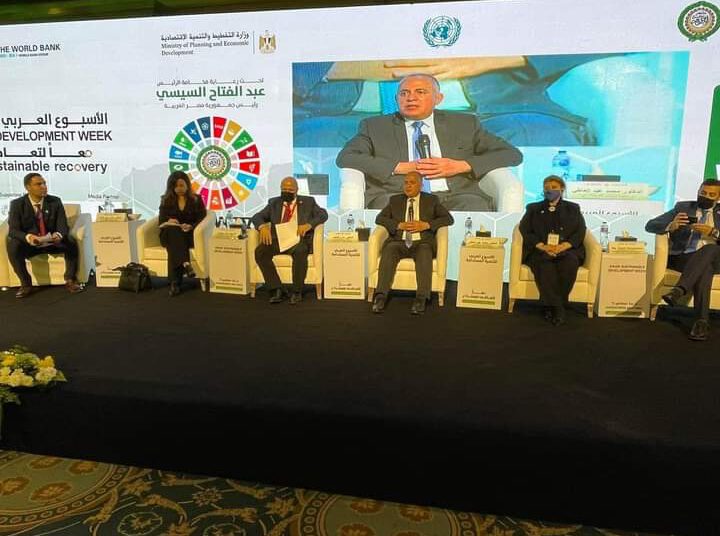The issue of water security in the Arab region was at heart of the 4th Arab Sustainable Development Week.
The event, themed ‘Urban Water Security for Sustainable Development in the Arab Region’, was held under the auspices of the Egyptian President Abdel Fattah El Sisi.
Irrigation Minister Mohamed Abdel Aati reviewed Egypt’s water situation, highlighting the challenges facing Egypt, which is a “hyper- arid” country.
Rising population increase, limited water resources and climate change are the greatest challenges, the minister said, adding that Egypt depends on the River Nile for 97 per cent of its water needs.
To meet these challenges, the ministry has developed a plan to manage water resources until 2037 in co-operation with all other ministries concerned, the minister added.
More than $50 billion has been invested in the plan so far, but this figure is expected to double, Abdel Aati said.
“Finance is another challenge,” he added.
Co-operation between Egypt and African countries is one of the most obvious signs of international co-operation, based on brotherhood and exchange of experiences, Abdel Aati said, referring to the navigation corridor between Lake Victoria and the Mediterranean (VICMED), which will transform the Nile into a development hub linking the Nile Basin countries.
The entire project comprises a navigation corridor, a highway, a railway, an electrical connection and an Internet cable connection to achieve development of the Nile Basin countries.
Speaking to The Egyptian Gazette, Dr Hassan Abol Naga, Researcher and Chair of Urban Water Security at International Water Resources Association, said that Water security is at heart of sustainable development and climate actions .
“In Egypt, we have seen a new model for achieving water security through new laws and regulations and new projects in addition to giving a priority to integrated water management where all stakeholders are involved,” Abol Naga said.
“The presence of framers in the last Cairo Water Week is a striking example of that as they were participating not just as beneficiaries from water resources but also as main stakeholders,” he said.
Abol Naga went on to say that water is critical for socio-economic development, healthy ecosystems and human dignity.
“Water is also at the core of climate adaptation, serving as the crucial link between the climate system, livelihood and the environment.”
“The region is highly urbanised – 76 per cent of the population live in towns and cities – and water supply to an urban population is yet another challenge.
“The volume of non-revenue water (water that is lost before it reaches a customer) is estimated at 15 billion cubic metres a year, while desalination yields 17 billion cubic metres in the region,” Abol Naga explained.
Jordanian Former Minister of Water and Agriculture Hazim el-Naser said Jordan is faced with serious problems due to severely limited water resources, population increase, inadequate funding, and the impact of climate change on rainfall.
The water share per capita water in Jordan is less than 100 cubic metres. The real problem that Jordan is facing is in water supply options. “They are not limited, almost zero,” el-Naser said.
“Water management must improve and the necessary funding should be made available,” he said, referring to the importance of raising public awareness, expanding water re-use and relying on renewable energy in the water sector.
“Water is a human right,” he said, adding that channelling new technologies and innovation into water operations is another challenge as neither the infrastructure nor the culture is ready for that.






Discussion about this post